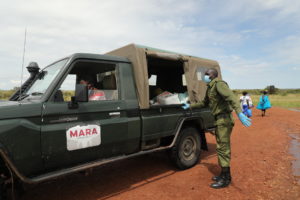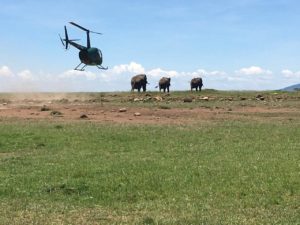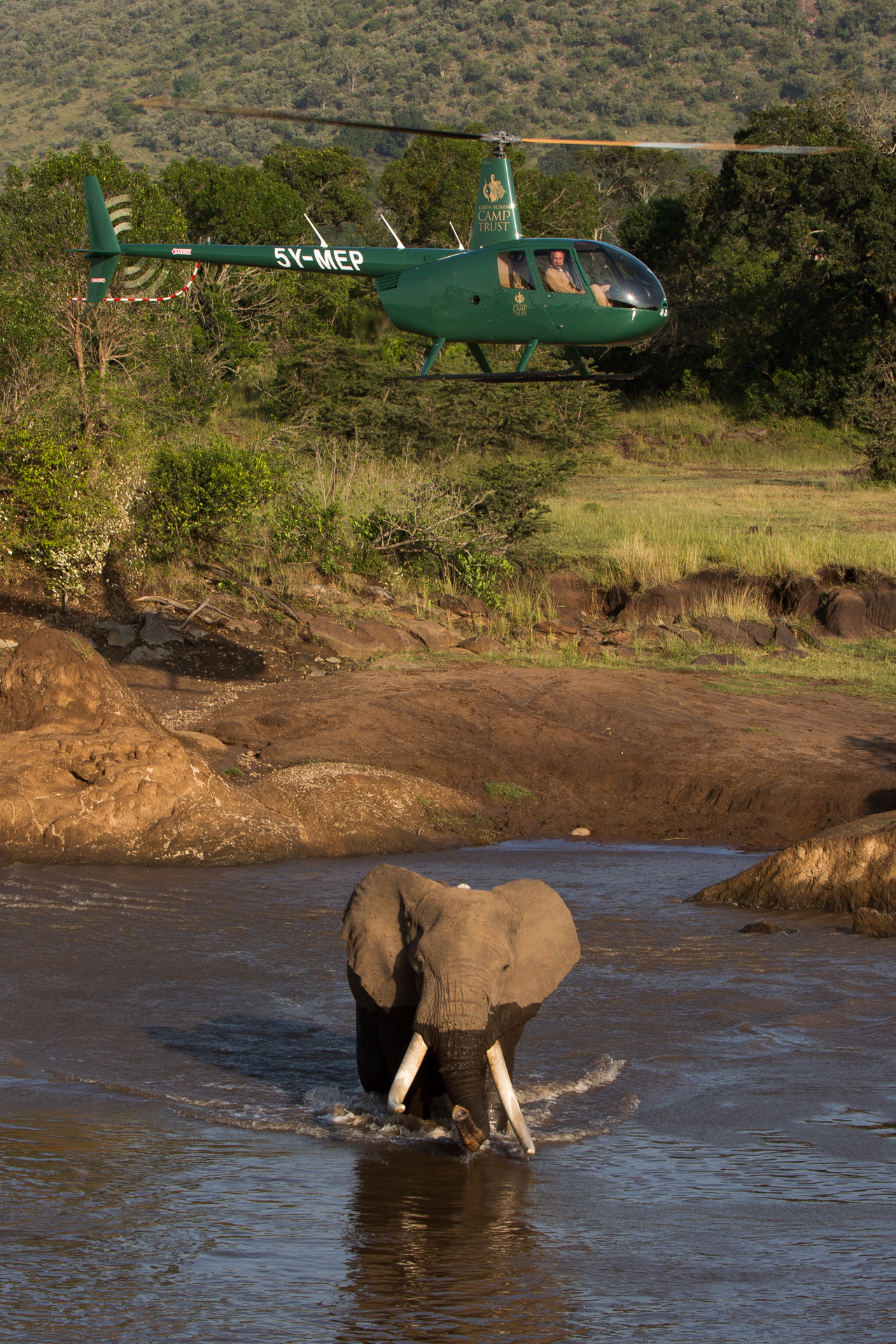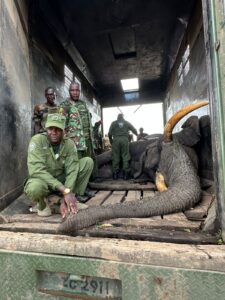The rapid and global spread of the COVID-19 virus means a challenging future for conservation, particularly elephant conservation in Kenya. Mara Elephant Project is taking the COVID-19 situation very seriously and as a first responder continues to reinforce and abide by all national and international guidelines to help reduce the spread of the virus. At our headquarters, we have instituted an isolation policy amongst staff, provided all rangers with face masks and trained them in the necessary measures to keep them safe while they continue their essential work to protect elephants. We have set up hand washing stations and are continuing our efforts to support the communities by providing extensive educational materials and training.
 MEP works closely with the local communities to protect Kenya’s iconic elephants and the Mara ecosystem and we are deeply concerned about the socio-economic downturn in the Mara and the impact it has on them. The current economic downfall threatens communities, wildlife and protected areas, which depend on tourism revenues to thrive. To combat this, MEP has taken several different approaches; we built hand washing stations called tippy taps throughout the Mara to allow access to soap and water for communities to follow proper hand washing protocols and assisted a local partner to distribute face masks and food bundles to families affected by job loss due to COVID-19 (pictured left). MEP continues to closely monitor the Mara on the ground and has ranger teams in the field to continue their essential patrols. Additionally, as economic hardships increase for local communities, more than ever, their food security is critical to the well-being of the entire community.
MEP works closely with the local communities to protect Kenya’s iconic elephants and the Mara ecosystem and we are deeply concerned about the socio-economic downturn in the Mara and the impact it has on them. The current economic downfall threatens communities, wildlife and protected areas, which depend on tourism revenues to thrive. To combat this, MEP has taken several different approaches; we built hand washing stations called tippy taps throughout the Mara to allow access to soap and water for communities to follow proper hand washing protocols and assisted a local partner to distribute face masks and food bundles to families affected by job loss due to COVID-19 (pictured left). MEP continues to closely monitor the Mara on the ground and has ranger teams in the field to continue their essential patrols. Additionally, as economic hardships increase for local communities, more than ever, their food security is critical to the well-being of the entire community.
MEP remains vigilant in protecting crops from elephants all while remaining safely isolated to avoid the spread of this highly infectious disease.

The Karen Blixen Camp Trust helicopter has been paramount to ensuring crops are protected and MEP staff are safely isolated. It’s vital to ensuring food security for farmer’s defending their crops against elephants. The helicopter has also been crucial for aerial reconnaissance in threatened areas of the ecosystem and to support key government partners and respond to emergencies. In the first four months of 2020 alone, MEP has flown the helicopter more hours than normal with a total of 122 hours of flying time. To put that into perspective, MEP flew a total of 192 hours in the last seven months of 2019.
It costs MEP $400 an hour to fly the helicopter and more flying time for protection of communities and wildlife is needed during this unprecedented time.
DONATE
As a frontline conservation organization, Mara Elephant Project is reacting in real-time to the rapidly changing environment as a result of COVID-19. Never in any of our lives have we dealt with anything like what is happening now, and we will adapt to meet this, and future challenges and we will do our best to fight this pandemic together.
When the pandemic is over, we will be a stronger and more united community in the Mara with your continued support.
Donate to the helicopter today!

Photo by Adam Bannister from Angama Mara.


